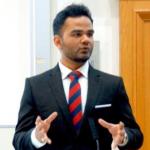Title
ITF in Focus: Enhancing inclusiveness through sustainable transport - lessons from emerging economies
Session
Several emerging economies have already pledged to achieve a net-zero emissions target in the coming decades, and many others are proposing it. Reshaping the mobility systems for net-zero will require changes to how people move between and within places, and while solutions such as the electrification of vehicles and renewable energy will help, it is crucial that sustainable mobility is also inclusive and equitable. Pandemic recovery plans and policies must therefore comprise of, among other elements, the development of sustainable mobility that is accessible to and affordable to all, in order to ensure that we leave nobody behind as we ramp up efforts for climate action and sustainability.
This session brought together decision-makers from ITF partner countries in the Decarbonising Transport in Emerging Economies (DTEE) and the NDC Initiative for Asia (NDC-TIA) projects and from other emerging economies and representatives from financial institutions. The ITF presented an overview of these projects, their objectives and status. Panellists discussed the specific challenges and opportunities in making transport inclusive and achieving their emission reduction targets at the same time. They also pointed to specific funding challenges that they are encountering. Representatives from financial institutions then outlined their efforts to promote sustainable transport solutions that foster inclusiveness.
Among the main points raised by panellists were:
- Inclusivity in the transport sector and planning is important. It is necessary to recognise differing needs – for example, between rapidly urbanising populations and more rural ones – as well as encouraging greater participation of different groups, such as women, in the transport sector.
- Finance is not only a concern for the initial capital investment. Maintenance costs, operational financing and affordability of implemented solutions are also key. These factors should be considered fully at the planning stage.
- Panellists suggested low-cost funding solutions are more readily available to public institutions and that solutions also need to be put in place for SMEs and private operators.
- Finally, the need was highlighted for better data on the transport system, demand and the gaps that need addressing, as well as a greater understanding of the potential impacts of different interventions.
The session concluded with the announcement of the winners of the ITF’s Decarbonising Transport Award and presentations of their work. The award recognises research and innovation with great potential to help decarbonise transport in emerging economies. The winners were:
- For innovation: Michael R. Wanyama, Wanyama Autosafety Initiatives Kampala, Uganda
Michael presented his work to improve awareness in communities and training for mechanics, so that the overall standard of the vehicle fleets would be improved and the consequent emissions reduced.
- For research: James Moronge, University of Nairobi, Kenya
James presented his research proposal on the transition to electric BodaBoda (two- and three-wheeler vehicles) with the aim of reducing emissions.
The DTEE and NDC-TIA projects are funded by the International Climate Initiative (IKI) of the Federal Ministry for the Environment, Nature Conservation and Nuclear Safety (BMU).
Speakers

Siddharth Sinha
Officer on Special Duty to the CEO
NITI Aayog (National Institution for Transforming India)


